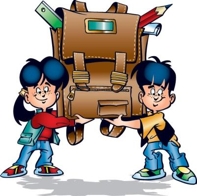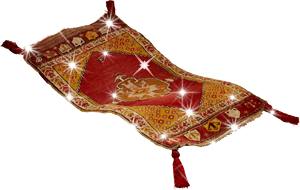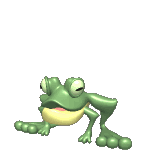 |
|
|
Урок для 5 - 6 классов Тема: Конкурс рассказчиков Цели: 1.Совершенствование лексических навыков; 2.Активизация навыков диалогической речи; 3.Актуализация навыков чтения и речи Оборудование:картинки с изображением различных городов мира; значки для конкурса рассказчиков.
ХОД УРОКА I. Организационныймомент -Good morning,children! I am glad to see you. (We are gladto see you too.) How are you?(We are fine, thanks. And howare you?) I’m fine, thank you. Who is absent today? (Kate is absent.) Why is she absent? (She is ill.)
II.Фонетическая разминка
III.Речевая разминка -I want you to finish my sentences. Don’t forget torepeat the beginning of the sentence. Учительпредлагает уч-ся вспомнить рассказ «Дядя и тётя Пэт» и закончить предложенияучителя. -This was a story ... . (This was a story about a boy and his uncle and aunt.) -Uncle-and-Auntie Pat lived … . (Uncle-and-Auntie Pat lived at Wishing Well farm.) -One day the boy decided … . (One day the boy decided to visit his aunt and uncle.) -It was difficult to find Wishing Well Farm … . (It was difficult to find Wishing Well Farmbecause the sing was broken.) -Uncle-and-Auntie Pat were glad to see their nephewand … . (Uncle-and-Auntie Pat were gladto see their nephew and told him many interesting things about their farm.) -The boy noticed … . (The boy noticed the farm shop was very quiet.) -The business of Uncle-and-Auntie Pat … . (The business Uncle-and-Auntie Pat wasterrible.) -The boy wanted to … . (The boy wanted to help them and tossed his ten pence in the well.) -Then the boy and Uncle-and-Auntie Pat … . (Then the boy and Uncle-and-Auntie Pat madea lot of new sings.) -No one could … . (Noone could miss Wishing Well farm.) -By the next week, things … . (By the next week, things were better.) -One afternoon the boy … . (One afternoon the boy left the farm.) -Uncle-and-Auntie Pat thanked … . (Uncle-and-Auntie Pat thanked the boy for his help on the farm.)
IV. Активизациянавыков пересказа. Проверка домашнего задания -It’s time to listen to your stories. Who will be thefirst today?
V. Физкультминутка -I can see you are tired. Can you recite the poem anddo exercises? Hands on the head, Hands on the hips, Hands on the table, Hands like this. (Любое движение) Hands on the shoulders, Hands up and down, Hands behind the head And sit down!
VI. Развитиенавыков устной речи по теме «Лица Лондона» -Look at the blackboard, please. You can see thepictures of different please there. -Can you name them? You may speak Russian or English.Open your books, page 78, exercise 1. -Do you know these places? What can you say about ourtown? Is it famous all over the world? Are you proud of it? Do you like ourtown? Why?Why not? Учительразмещает на доске картинки городов мира и родного города учащихся.
VII. Совершенствованиелексических и фонетических навыков -There are a lot of interesting places and beautifulcities all over the world. We shall have a talk on the topic “Face of London”.First let’s practise today’s vocabulary. We shall repeat the words fromexercise 2, page78 from your textbooks after the speaker.
VIII. Актуализация навыков диалогической речи -Let’s listen to the short dialogue. Keep your booksclosed. Find out what the dialogue is about. -Now you may open your textbooks, exercise 3, page 79.Read the dialogue in pairs. -Will you act out the dialogue? Can you change it?(Westminster Abbey, the White Tower, Tower Bridge, Oxford street, the BloodyTower, Trafalgar Square, Red Square, Tretyakov Gallery, etc.)
IX. Итог урока -Our lesson is over! Raise your head! Jump up high! Wave your hand! And say “good-bye”. -Good-bye, children!
Тема:"Кот Матроскин" 4 класс Цели:
Оборудование: жетоны для игры «Аукцион»; игрушка или картинка с изображением Кота Матроскина; картинки животных; картинки для введения новой лексики.
Ход урока I. Организационный момент Good morning, children! (Good morning, Valery Evgenevich!) I am glad to see you. (We are glad to see you too.) Today we shall have f guest. It is the Cat Matroskin from the cartoon about Prostokvashino. He likes his village very much and he wants to play with us and he wants you to learn some new words on the topic “Animals”. II. Фонетическая зарядка
Very good, children. III. Речевая разминка Matroskin wants you to play a new game. Be active and try to remember as many English words as you can. Игра «Аукцион» Дети по очереди называют названия животных (слова по теме «Город и село», степени сравнительных прилагательных). Учитель раздаёт жетоны. Ученик, набравший большее количество жетонов, является победителем аукциона. Учитель выставляет игрушки. Игра «Назови рифму» Учитель называет слово, ученики должны подобрать рифму к этому слову. Ученик, назвавший слово, получает жетон.
Zoo. (Two.) Page. (Cage.) Mouse. (House.) Now. (Cow.) Big. (Pig.) Hot. (Not.) Mice. (Nice.) Clean. (Green.) Ball. (Tall.)
IV. Тренировка навыков устной речи. Проверка домашнего задания It’s time to check up your homework. Open your books, page 86 and say which animal is happier. Учитель организует проверку домашнего задания упр. 22, стр. 87. Затем на доске вывешиваются подобные картинки с другими животными, и дети отвечают по ним на вопросы учителя. Вопросы учителя: Which animal is happier? (котёнок в лесу и котёнок дома; крокодил в пустыне и крокодил в воде; медведь в зоопарке и медведь в лесу) Which animal is bigger? (мышонок и лиса; кроли и слон; заяц и медведь) Which animal is stronger? (лягушка и обезьяна; кошка и мышь; лев и овца) V. Физкультминутка I can se you are tired. Will you stand up, please? Let’s learn the new poem. Listen to me and try to understand it. Can you hop like rabbit? Can you jump like a frog? Can you walk like a duck? Can you run like a dog? Can you fly like a bird? Can you swim like a fish? Can you be like a good child as still as you wish? Учитель рассказывает стихотворение, а затем переводит его с детьми. Он предлагает ученикам придумать подходящие движения к данному стихотворению и разучить его. VI. Введение новой лексики по теме «Животные и места их обитания» Cat Matroskin know a lot about the animals and their homes. Look at the blackboard, please. Let’s try to read the new words. Учитель привлекает внимание учащихся к новым и трудным для произношения словам на доске. Слова записаны с транскрипцией. Перевод слов осуществляется при помощи соответствующих картинок. Учащиеся читают слова самостоятельно и повторяют их за учителем. Слова на доске: iceberg, desert, mountains, ocean, whale, eagle, wolf, camel, penguin, dolphin, crawl. We shall repeat some words after the speaker. You can read the words in exercise 23, page 87 in your textbooks. Now you will read the words pairs. Ученики повторяют слова за диктором, а затем читают их в парах. VII. Первичное закрепление введённой лексики It’s interesting to find the homes or different animals. Look at the pictures of exercise 25, page 87 and read the task. What other animals live in the mountains (in the country, in the desert, etc.)? Work in groups of three and answer my question. Ученики делятся на группы и дополняют список животных по каждой картинке с изображением места обитания. Например: a horse (a pig, a sheep, a hen, a duck) can live in the country. A fox (a bear, a hare) can live in the forest. Ect. IX. Подведение итогов урока That’s all for today. Your home task is to prepare a story about a friend-animal. You can find the plan of the story on page 88, exercise 26. Let’s say “thank you” and “good-bye” to our guest. I hope he will visit us again. Holiday are over, No more fun, Holiday are over, School has begun! Ученики рассказывают стихотворение вместе с учителем. Good-bye, boys! Good-bye, girls! (Good-bye, teacher!) |
|



